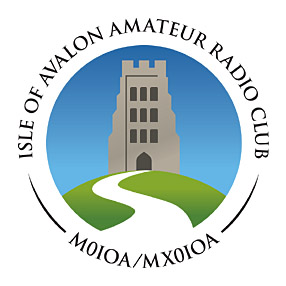How to get Your Amateur Radio Licence

Amateur radio1 lets you use a wide range of frequencies and transmit powers of up to 400W. Some knowledge is necessary to use this responsibly. You need to show the regulator a basic level of knowledge by passing an Amateur Radio exam and getting a licence, which allocates a station identifier to you - your callsign. You do not need to learn Morse Code2. This page gives you an overview of the process. We have taken four people to successfully getting licensed in 2019.
There are three levels of Amateur Radio licence, Foundation, Intermediate and Full, requiring increasing levels of knowledge, and giving access to higher power levels and some more frequencies. Here we will only talk about Foundation, which is the gateway into the hobby.
What you need to do to get your Foundation Amateur Radio Licence
You need to study for and pass the Foundation Amateur Radio Exam. This is not onerous, though takes a little effort.
The exam
 We have found that our trainees do well using self-study for Foundation, there is a book called The Foundation Licence Manual. Make sure you get the one for the current exams (the syllabus changed in 2019). If you come along to a meeting we can show you a copy, and get one for you at the RSGB member’s price as an affiliated club.
We have found that our trainees do well using self-study for Foundation, there is a book called The Foundation Licence Manual. Make sure you get the one for the current exams (the syllabus changed in 2019). If you come along to a meeting we can show you a copy, and get one for you at the RSGB member’s price as an affiliated club.
Some people prefer a lecture/classroom based training. We don’t offer that, but you can look on the RSGB course and exam finder. Alternatively you can study online with Essex Ham
You must apply for the exam at least two weeks before taking it. The Foundation exam can be taken online using your own computer at home and remotely invigilated. The RSGB exam booking form is here, most people take the exam online.
If you wish to take a paper exam at Glastonbury you need to arrange this with our Examination Secretary who will need to arrange access to the Scout Hut and get the required number of support people like invigilators, as well as getting the sealed exam papers from the RSGB.
How much does it cost?
There is a charge for the exam - for detailed information and current prices take a look at the Radio Society of Great Britain Training page We would recommend you don’t spend any money on equipment until you have an idea of what you want to do with radio - but as a guide a basic handheld can be had for £30 or less these days. Once you have passed the exam the Amateur Radio licence is free if you apply online and lasts for life, though you need to revalidate your contact details every five years.
-
Amateur radio is governed by the United Nations through its agency the International Telecommunications Union - Radiocommunication Sector ITU-R. Frequencies allocated to amateur radio by the ITU-R are not available for commercial use though some bands are shared between amateurs and other users, usually military. Member nations are expected to protect amateur radio allocations from interference and from commercial encroachment; in the UK this function is carried out by Ofcom. ↩
-
There seems to be a common misconception that you need Morse for an Amateur radio licence - I (G7LEE) passed the RAE in the late 1970s and never learned Morse. The requirement for the Full licence was dropped in 2003 You are perfectly at liberty to learn or use Morse - you can use it as a data mode in FLdigi even if you don’t know the code. Amateur Radio is a broad church with lots of niche interests. You can use Morse Code for it’s particular advantages of good weak signal performance, but you can leave it be if it’s not your thing. In the Foundation practical there is a short familiarisation so you can recognise the sound of the mode, but a cheat sheet is provided, there is no need to learn the code. ↩
